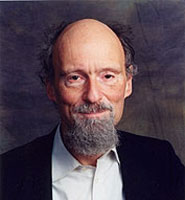Leading economic commentator Professor Michael Lipton FBA will deliver a free public lecture at the University tonight [Tuesday 9 June], as part of the ongoing centenary lecture series, on the role of agriculture in eliminating poverty.
Entitled 'Poverty, inequality and agriculture: big fish and red herrings', the lecture will address the historically unprecedented scale, speed and spread of severe, life-threatening poverty and how agriculture is central to its causes and cures.
Professor Lipton will discuss how poverty can be reduced by farm growth; wider access to farmland; and rises in demand for work relative to supply; in quality of work due to education; and in ratios of workers to dependents. He will also question why poverty has hardly fallen for certain regions and groups and look at the challenges we face when measuring poverty and comparing it among times and places, particularly when set in the context of threats to environmental sustainability, rising energy and food prices, and a deep and prolonged global recession.
The lecture will take place at 6pm in the Wills Memorial Building and is free and open to all but advance online booking on the centenary website is essential.
Professor Michael Lipton, FBA, is Research Professor of Economics at Sussex University. He specialises in agricultural research, land reform, poverty and inequality, nutrition, and economic demography in developing countries, including Bangladesh, Botswana, India, Sierra Leone, Sri Lanka and South Africa. He has worked as an adviser and author for the World Bank, the International Food Policy Research Institute, the UN Human Development Report and the Asian Development Bank.